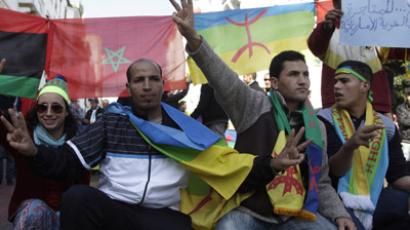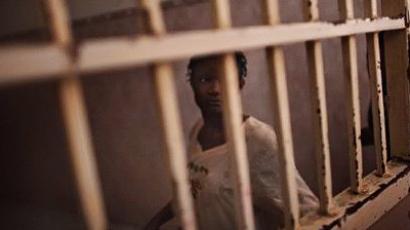Libya one year on: Celebration or commemoration?
On February 17, Libya will mark the first anniversary of the uprising against Muammar Gaddafi. But journalist Lizzie Phelan notes that millions of Libyans will be commiserating, and not celebrating, on the date.
“I think that very few people inside Libya, and many of those who have been forced to flee since the NATO and rebel invasion of Tripoli, will actually be celebrating today” she told RT. “Many thousands – if not millions – of people will be commiserating and commemorating the beginning of the destruction of their country, which began more or less a year ago.”Phelan noted that Libya currently has no government, saying that the National Transitional Council is nothing more than a media show. “There are hundreds of militias that control different parts of the country. And Muammar Gaddafi and the former Libyan government always warned that this would happen.”She cited numerous examples of human rights violations by the NTC and its local councils, including the jailing of the country’s former representative to the UN as well as two philosophers for supporting Gaddafi.“Just a few days ago, for example, in Misrata, the heads of the Misrata NTC announced that they would hold local elections there. And astonishingly, they named 50,000 people who would be allowed to participate in this election. And this is really a tiny proportion of the population of Misrata; its population is approximately half a million,” Phelan noted. She added that this sign of elections in a post-Gaddafi Libya, along with a bevy of other examples, doesn’t bode well for the West's promises of democracy following the end of Gaddafi rule.Jim Brann, a spokesperson for the Stop The War Coalition, believes the Libyan uprising did not achieve the outcome people had hoped for.
“If people said that the problem was Gaddafi, you can find many people who say that the problem wasn’t Gaddafi as such, it was lack of rule of law, for example, and clearly you don’t have the rule of law now in Libya at all,” he told RT.
Brann recalled what National Transitional Council chairman Mustafa Abdul Jalil said about the growing number of clashes between various militias.
“We are now between two bitter options,” Jalil stated on January 4, “We deal with these violations strictly and put the Libyans in a military confrontation which we don't accept, or we split and there will be a civil war. If there's no security, there will be no law, no development and no elections. People are taking the law into their own hands.”
Brann noted the lack of progress in integrating the militias into the national army and the national police.
“Just by the very limited newspaper reports you find, you see that very few people have joined,” Brann said.
He pointed to alarming trends of sectarian violence currently on the rise throughout the country.
“You have this creation of a federation of Western militias, a few days ago of a hundred of militias in the west of Libya, and that really does seem to be a step on the road to the breakup of Libya into at least two parts, west and east, if not more.”














